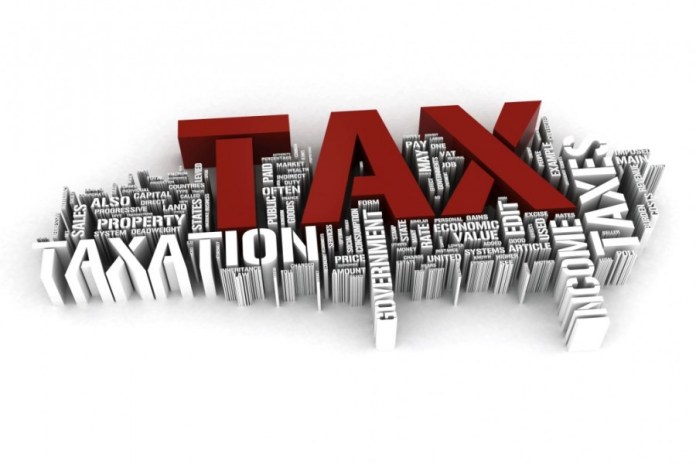Taxation vs. Free Market
The human was born free and has been free to do business to make a living. However, during this process, society expects compliance with certain standards and regulations to ensure the smooth flow of usual activities and socio-economic norms. The society also expects a certain kickback from the people because of their existence and usage of social space. Taxation is one of the most prominent examples of these kickbacks. Understanding Tax Basics Taxation is one of the social and legal obligations on people executing a profit-making process. However, the money raised through taxes is aimed to be used for public utility services and has been an effective tool to manage the cultural and socio-economic aspects of our community. Taxes are compulsory. Usually, when money leaves your pocket, you are exchanging it for a specific good or service. However, taxes are unrequited. This means that they are not paid in exchange for a specific public service or sale or purchase of public property. Nonetheless, sometimes there is some kind of connection between the taxes you pay and a particular service you enjoy from the government. For instance, paying road toll levies to help maintain the road network or paying taxes on motor fuel to help finance the construction of new roads or maintenance of old roads. The Government aims to collect taxes to enhance the socio-cultural and economic environment. This revenue is used to finance public welfare works like schools, colleges, hospitals, construction & infrastructure works, security & defence, and other projects to support life in our region. Countries around the globe have developed different regulations to collect taxes from individuals and corporations. Applicable Rules and regulations change with the change of country. For instance, tax-related laws in Ghana are different from applicable tax laws in the United States in terms of compliance and practical application. However, tax is generally calculated on profit, salary, capital gain, interest, dividend, etc. The taxpayer is required to take out a certain percentage from their earnings and submit it to the Government. The amount of tax one pays generally increases with an increase in earnings. There are different types of taxes: income tax, payroll tax, corporate tax, sales tax, property tax, tariff, estate tax, etc. These taxes can largely be described as being either direct or indirect. Direct taxes are charged on incomes and profits and paid by an individual or organisation directly to the Government. Its payment can’t be shifted to another person and must be borne by the individual or organisation, e.g. income tax and corporate tax. It’s difficult for the government to collect this unless it’s at the source. Indirect taxes are levied on products and services and can be transferred to the end-user or consumer. The Government charges these on manufacturers and suppliers for the import, sale and purchase of goods who in turn pass on this cost to the final consumer. An example of this is the Value Added Tax (VAT) and tariffs. The taxation system varies from nation to nation, and individuals/corporations need to thoroughly understand the taxation system and ensure they comply. From an African perspective, tax is progressive, which means that your tax liability increases with your increase of income. African Tax History The roots of taxation in Africa can be traced back to the Colonial days. Time has witnessed different rulers taking the power of tribes and introducing their own governance and tax collection system. One of the interesting instances from the pages of history is the introduction of the “Hut Tax” that Britain introduced in Africa, derived from its payment on a “per hut basis”. The hut tax was payable in the form of labour, grains, money or stock, and the tax collected was used to manage operational and strategic matters of an empire. Similarly, a poll tax was introduced by Britain in Africa somewhere in the 19th century where a fixed sum per head was charged from each citizen; it was also called “Head Tax”. This was charged usually on able-bodied men without recourse to their income levels. The purpose of this tax collection kept changing from time to time and included combinations of the following. The poll tax was effective in its conceptual simplicity. However, the problem with this system was the ignorance around the collection and that everyone was required to pay an equal amount irrespective of their earnings level. So there were improvements in the overall system of collection and rules from time to time that has resulted in modern-day taxation. Advantages of the taxation system Following are some of the advantages associated with taxation. Disadvantages of the Taxation System Following are some of the disadvantages associated with taxation. Understanding Free Market A free market is when traders are free to conduct economic activities without the Government’s intervention. The price of goods is merely based on supply and demand because of no Government’s stake in taxes, subsidies, and price regulations. Although, no market in the world is completely free. That is why economists have studied the degree of market freedom and economic well-being and the conclusion was a positive correlation between these concepts. Still, there is a need to analyse if the free market always brings economic well-being and if a country can survive without a tax collection system. To the extent of well-being, it can be considered to add certain value in the economic system by efficient allocation of resources, setting competitive prices, invention, innovation, better quality product, higher economies of scale, and help reduce domestic monopoly. Nonetheless, the problem falls in the area of Government interest to finance social projects and ensure the well-being of the society overall; this is not possible without a robust system of tax collection. On the other hand, the supporters of the free-market claim taxes to have a negative impact on economic activities by reducing the individual incentive to work hard and produce more and that the overall national output is expected to decrease with implementing higher taxes in the national economy. Advantages of
Taxation vs. Free Market Read More »




